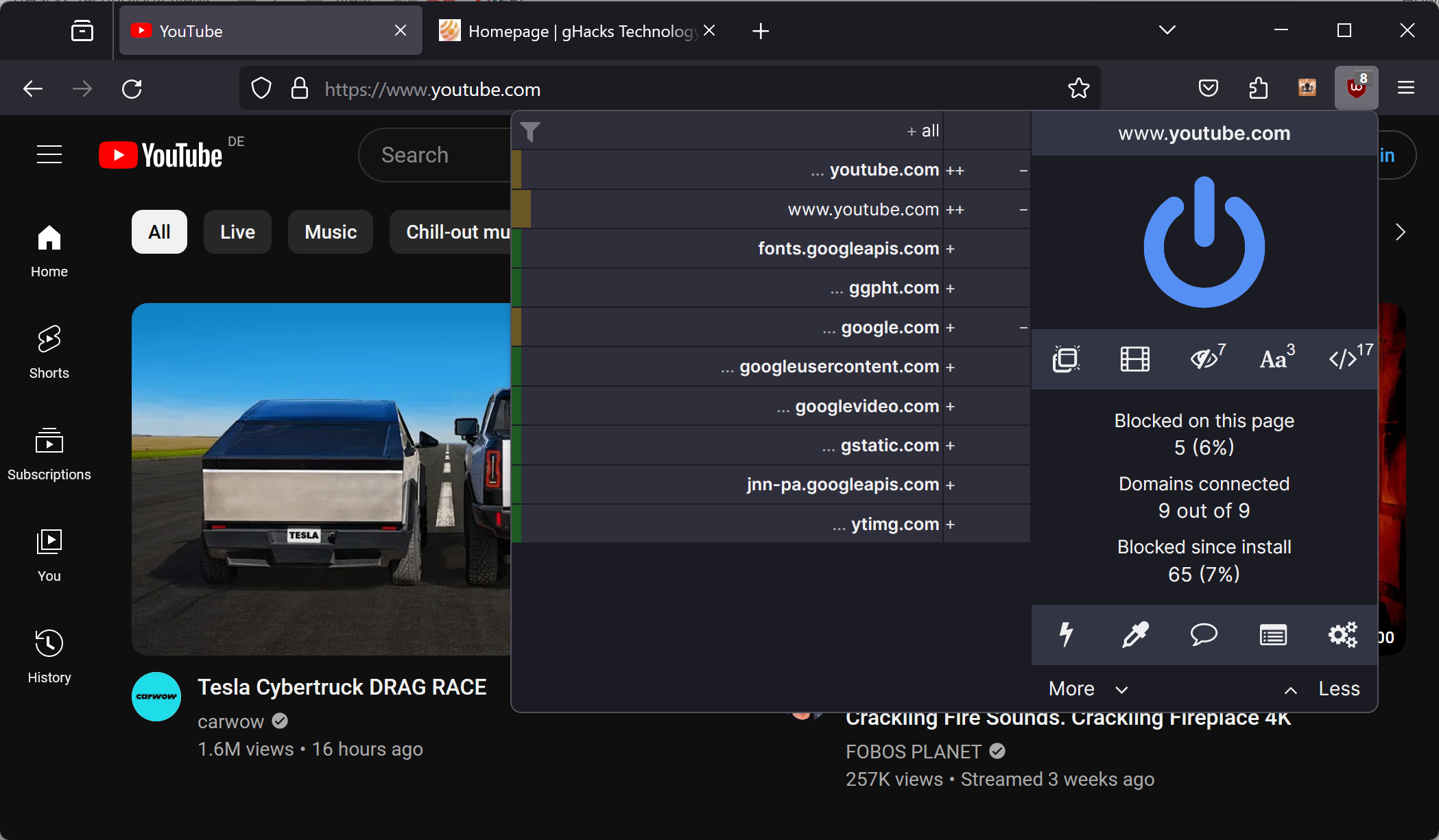Google plans to roll out Manifest V3, a new rules system for browser extensions, by mid 2024. The old system will no longer be supported by then, which means that all extensions for Chrome, the company's browser, need to support Manifest V3. Browser extensions that aren't updated by their developers will stop functioning.
Manifest V3 has been criticized heavily by privacy advocates and extension developers. Especially privacy-related tools, which includes adblockers, appear to be limited under Manifest V3.
While it is still possible to run adblockers and other privacy tools, these may no longer be as effective as before. Good news is that there are alternative browsers that users can switch to. Firefox, Mozilla's web browser, will also support Manifest V3, but also keep on supporting Manifest V2. In other words: Firefox users won't feel the impact of the change at all.
Chromium-based browsers like Brave, Vivaldi, Edge or Opera are in a different position. They may include a native content blocking option already, which is unaffected by the change. Extensions on the other hand may very well be affected, unless the developers hack Manifest V2 support into their browsers or alter Manifest V3 functionality.
The change impacts Chrome the most, but other Chromium-based browsers will also be affected.
Google's second weapon against adblocking

If this would not be bad enough, Google is also in control of the Chrome Web Store. Most Chromium-based browsers support installing extensions from the Store. In fact, only a few have a Store of their own as an alternative.
A recent Ars Technica article highlights another lever that Google has to make adblockers less effective. One of the main changes of the Manifest V3 system is that extensions lose the option to use "remotely hosted code".
Most adblockers rely on filter lists to block content on the Web. These lists are sometimes updated several times a day to react to changes on existing platforms or add new filtering rules.
Once Manifest V3 lands, all extension updates will have to go through the Chrome Web Store. If an extension wants to updates its filter list, which is just a list of strings, it needs to do so by pushing an update to the Chrome Web Store.
Reviews on the Chrome Web Store may take anywhere from a few hours to days or weeks even. Even worse, this delay is under the current system. Imagine a review process were hundreds of thousands of Chrome extensions push all of their updates through the Chrome Web Store. Unless Google adds more resources to the process, things will likely slow down further.
This is a problem, especially since major sites like YouTube may make multiple changes throughout a day to limit content blocking.
Through this change, Google has put itself in an excellent position to make adblockers less effective on YouTube. To be precise, adblockers for Chromium-based browsers.
Firefox is not affected by this and so aren't any Firefox-based browsers.
Closing Words
Chrome is the world's most popular browser and it has a lot going for it. It is fast, has excellent web compatibility and doesn't get into the way of users for the most part.
Downside is that Chrome and the entire Chromium project are under Google's control. Google is an advertising company that will go through great lengths to protect its core business.
If you use Chrome and adblockers, you may want to consider migrating to another browser. Either a Chromium-based browser with integrated content blocker, such as Brave or Vivaldi, or Firefox.
Mozilla made some bad decisions in the past, but it also has corrected some of them. In a few days, Firefox users on Android may install any compatible extension in the browser. It already supported content blockers, but unlocking the entire extensions system is a massive win for users.
Chrome users who don't want to or can't make the switch at this point could install another browser on their systems and start using it next to Chrome.
Thank you for being a Ghacks reader. The post Soon, Google has even more leverage against adblockers appeared first on gHacks Technology News.


0 Commentaires